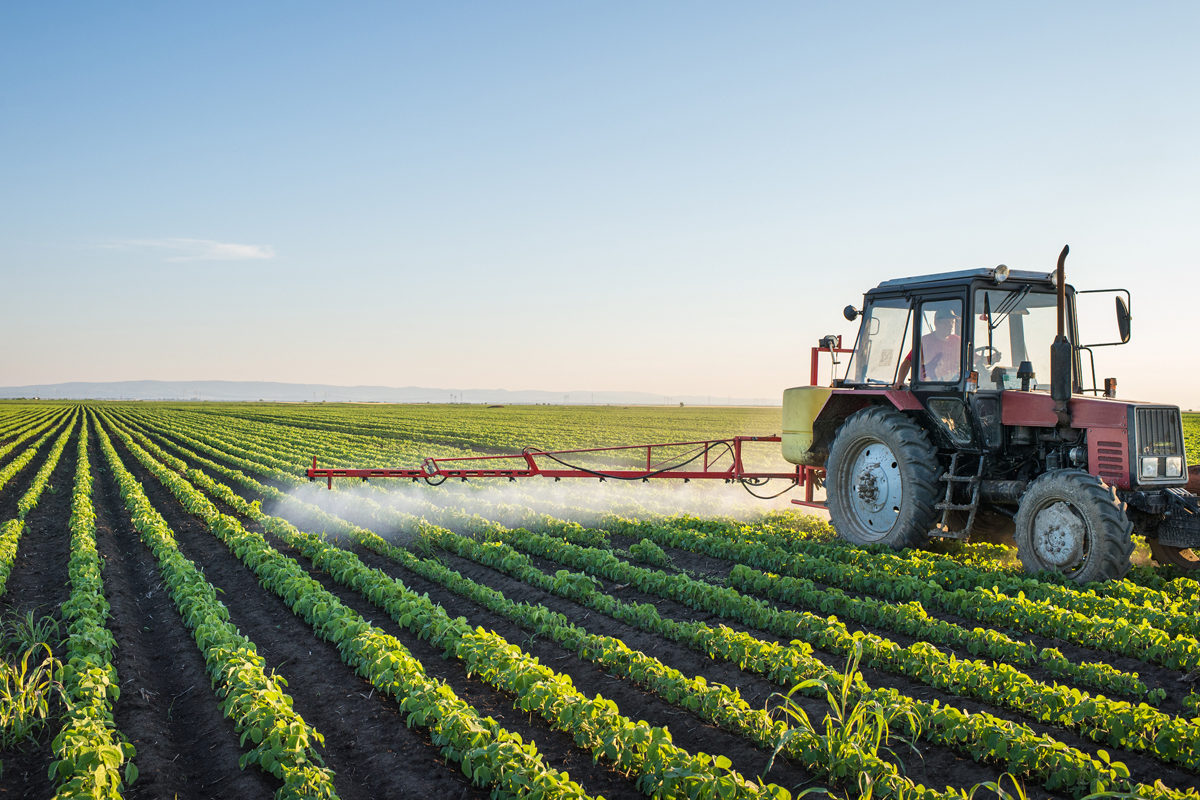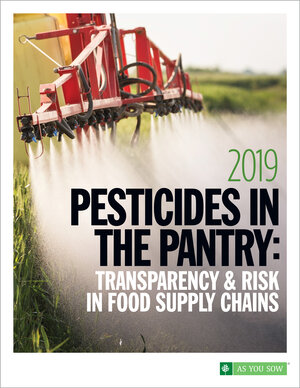Pesticides in the Pantry: Report ranks 14 largest food manufacturers on pesticide policies

By vast
Published: November 26, 2019
Category: Pesticides, The Organic & Non-GMO Report Newsletter

As You Sow recently released its Pesticides in the Pantry: Transparency & Risk in Food Supply Chains report, examining the growing risk to food manufacturers posed by the use of synthetic pesticides in agricultural supply chains. The report reviews the risks of farm systems reliant on high levels of toxic pesticides and provides benchmarks for improved management practices and transparency.
The report scores 14 major U.S. food manufacturers on their performance on 30 indicators designed to measure how effectively companies are reducing pesticide risk and advancing the interests of their stakeholders. Scores for this inaugural year of reporting were relatively low. General Mills and PepsiCo ranked highest while Post and B&G Foods scored lowest.
Out of a total possible score of 30, General Mills (18 points) and PepsiCo (14 points) earned the most points with Post and B&G Foods scoring the lowest (0 points each) while Kraft Heinz, Conagra, and J.M. Smucker earned just 2 points each. While most of the companies surveyed have some form of sustainable sourcing program in place for their supply chains, such programs lack clear criteria and almost none include pesticide use as an indicator within those programs.
“Most of the companies we surveyed scored very low in this first year; on the whole, food manufacturers are not taking adequate action to address pesticides in their supply chains,” said Christy Spees, environmental health program manager of As You Sow. “There were, however, leaders in the pack as well as noteworthy practices that will help guide others to take action.”
Conventional, pesticide-based agriculture is increasingly coming under fire. Consumers are demanding cleaner, safer foods and voting with their dollars. Litigation is raging around the health harms of the ubiquitous pesticide “Roundup,” while a growing body of scientific research connects pesticide exposures to harmful human health effects ranging from cancer, cardiovascular disease, birth and developmental defects, to liver and kidney disease, and obesity, among others. The harms of pesticide-based agriculture are also accruing across the environment—from loss of critical pollinator species to toxic waterways. Studies demonstrate connections between pesticides in the environment and reduced biodiversity and impacts on endangered species.
“Our children’s vulnerability to pesticide residues is a serious issue,” said André Leu, international director of Regeneration International. “Most people get their pesticide exposure from food. There is not one published scientific study proving the safety of these pesticide residues for children; however there are numerous studies showing that the most minute residues can harm the developing fetus, growing children, and adolescents going through puberty.”
Source: As You Sow
To view source article, visit:
http://www.asyousow.org/press-releases/pesticide-policies-supply-chain








